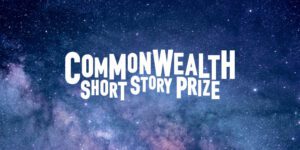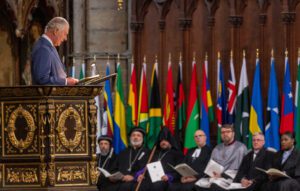Can stories told through the medium of films, short stories and poetry, change the way people perceive social problems and challenge deep rooted social issues?
High-profile journalistic exposés can trigger change. But how can citizens sharing stories of, for example, gender-based violence, influence public discussion on the issue? That’s the question the Commonwealth Foundation brought to International Civil Society Week 2017 (ICSW 2017), a global gathering of civil society organisations. ICSW 2017 took place in Fiji in December in honour of that nation’s position as chair of the recent climate talks in Bonn; the first time ICSW had been convened in the Pacific.
The Foundation’s approach to investigating the transformative power of stories was to produce three discussion events for ICSW 2017 predicated on the following themes: Gender and Justice; The Legacy of Indenture; and The Politics of Identity. Creative storytellers and civil society representatives were invited to come together and discuss the issues raised in films and written stories created as part of Commonwealth Writers’ capacity development projects for storytellers. The Foundation funded a total of eight climate and women’s-rights activists from the Caribbean and the Pacific to participate in these conversations and the wider forum.
‘From the Polynesian oral traditions of old to films streamed via the web today, stories capture and store human experience.’
In the first of three events, Gender and Justice, Katherine Reki played her powerful short film: My Mother’s Blood (2016). The film tells the tale of a woman that falls victim to the ravages of superstition, the loss of her land and livelihood and the son she leaves behind who plots revenge. Reki opened the discussion with a statement that resonated with the audience: ‘Why can’t films tell the story of our culture and history? Why does it always have to be Hollywood’s? I wanted to change that.’
#PacificVoices filmmaker Glenill Burara ‘the first cinema I went to was in Hawaii, to see my own film’ – point of pride for team at @cwwriters as this was thanks to our capacity development programme and Glenill’s undiscovered talent #CommonwealthShorts #CWconvo #ICSW2017 pic.twitter.com/xv8AD9lH4A
— Commonwealth Writers (@cwwriters) 6 December 2017
My Mother’s Blood’s narrative focus on people led to an emotional response that brought the room to life. The event’s chair, Gabrielle Hosein, pointed out how this could be useful: ‘if we can touch enough people’s hearts, we can cultivate action.’ This is partly the advantage that storytelling has over other ways of talking about social issues.
‘[Stories] create human connections to the issues and experiences they are a vehicle for. And in doing so they can encourage and shape conversations in a way many political discussions cannot.’
But, as the subsequent events explored, it is not just the emotional impact of stories that give them currency. In the event on The Legacy of Indenture, Mary Rokondravu, a Fijian writer and former winner of the Commonwealth Short Story Prize, made an important point: ‘if we leave these stories behind, then no one learns, and no one hears’. Indeed, stories have always played this role. From the Polynesian oral traditions of old to films streamed via the web today, stories capture and store human experience, and not only through the narrow experiences of those lucky or great enough to make it into the history books. With the proliferation of the internet, as one audience member pointed out, opportunities for ordinary citizens to have their stories acknowledged are increasing, and social media plays no small part in this.


The importance of stories as a means to preserve language and social identity was also discussed. Gabrielle Hosein emphasised that stories can give successors ‘a language to draw on’, enabling subsequent generations to create and sustain identities outside of the status quo. Mere Taito pointed out the importance of intellectual property laws in this debate: that social histories are written down is useful, just as long as they don’t find their way into ‘private vaults’.
.@rokonadravu2: In places w/ limited media freedom, that’s ‘where social media kicks in and fills in the gaps’. A key tool for telling those stories ‘otherwise subsumed in the broader national narrative’ #CWconvo #ICSW2017
— Commonwealth Writers (@cwwriters) 6 December 2017
.@gabriellehosein: ‘We need to be creating global south feminisms through stories so our sucessors have a language to draw on’ – Picture is of Gabrielle’s dazzling performance earlier in this #CWconvo at #ICSW2017 #Indenture100 pic.twitter.com/jlY64rI3XJ
— Commonwealth Writers (@cwwriters) 6 December 2017
At the concluding event, The Politics of Identity, Tracy Assing spoke of how indigenous histories were still not being ‘documented consistently or comprehensively’ and, with a glint of a tear in her eye, her performance of ‘Unaccounted For’, recently published in the Commonwealth Writers anthology So Many Islands, described how indigenous communities can attempt to undo this historical wrong: ‘I am the daughter of Ricky Assing and Marlene Ballantyne. The sister of Che […] this is how I was taught to introduce myself. It was a way of saying that I never walked alone’.
So, how do stories create change? They create human connections to the issues and experiences they are a vehicle for and, in doing so, they can encourage and shape conversations in a way many political discussions cannot. It was encouraging to see this idea picked up in the concluding ICSW 2017 plenary discussion on methods for civil society advocacy. But it was a subsequent comment from one of our panellists and former winner of the Commonwealth Short Story Prize, Mary Rokonodravu, which struck at the heart of the Foundation’s mission in Fiji:
Thank you @cwwriters – for voice, story, power to little islands and spaces, and for amplifying what would otherwise be impossible–the telling of fiction from my part of the world. https://t.co/N5eyGH5RMc
— Mary Rokonadravu (@rokonadravu2) 18 January 2018
The Foundation’s Commonwealth Writers programme continues to identify platforms and to promote such stories from less-heard voices during 2018 and will be hosting several events at this year’s Commonwealth People’s Forum in London.








